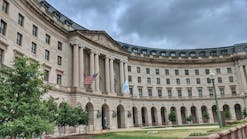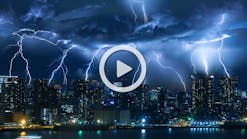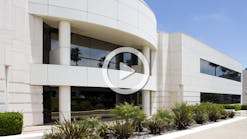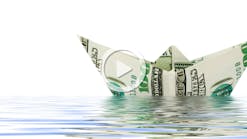As a young girl growing up in Westchester County, NY, Alexandra Dapolito Dunn would cross the Hudson River almost daily in a school bus. “I have strong memories of looking at that body of water,” she recalls.
She left the area at nine years old, and returned at 40. “I had my own family and was able to expose them to that watershed, and as an adult I had the chance to interact with dozens of passionate advocates for the ecosystem,” says Dunn. “I was part of an academic institution and collaborated with many other colleges and universities to protect, restore, and bring the Hudson back to a healthy status.”
Today, Dunn is executive director and general counsel of the Association of Clean Water Administrators–a national, nonpartisan organization of state, interstate, and territorial officials responsible for implementing surface water protection programs, facilitating communication with the federal government, and promoting public education. In the past 11 years of Dunn’s 18 years of experience in environmental law and policy, she’s focused her efforts on water quality, water treatment, and implementation of the Clean Water Act. She writes and speaks about water policy, sustainability, and environmental justice; lectures about law at the Columbus School of Law and Catholic University of America; and is an advisor to the Environmental Law Society. She chairs the American Bar Association’s Section of Environment, Energy, and Resources; serves on the Environmental Law Institute’s board of directors; and serves as secretary of the US Water Alliance.
What She Does Day to Day
A typical day for Dunn may involve a meeting at EPA headquarters, calls to individuals running clean water programs in a half-dozen states, as well as interacting with her staff and interest groups in Washington DC devoted to the cause of clean water.
What Led Her to This Work
It was her involvement in Girl Scouts–which gave her many opportunities to be out in the ecosystem–that instilled in Dunn a love for the outdoors and a desire to pursue a career to protect it. She earned her B.A., cum laude, in political science and French at James Madison University and her J.D., magna cum laude, at Catholic University of America, where she was the Law Review‘s editor-in-chief. During an internship at a Washington DC law firm, she worked with the environmental practice group, meeting people doing what she wanted to do: combine the power of words and persuasion with a passion for the outdoors to enact change.
What She Likes Best About This Work
“It’s very results-oriented,” says Dunn of her job. “Although achieving the goal of the Clean Water Act is a multi-decade goal, I see small steps daily along that journey, whether it’s a letter to Congress asking for greater funding for clean water, a meeting with EPA where a difficult issue is massaged, or providing someone some information. We are making progress to clean up water in the US.”
Her Greatest Challenge
Keeping her organization’s head above water with a staff of five and providing the best service possible is Dunn’s greatest challenge. “I don’t get a lot of sympathy for that, because my member state directors are also trying to do their jobs with not enough resources to maximize results in the near term,” she says.







